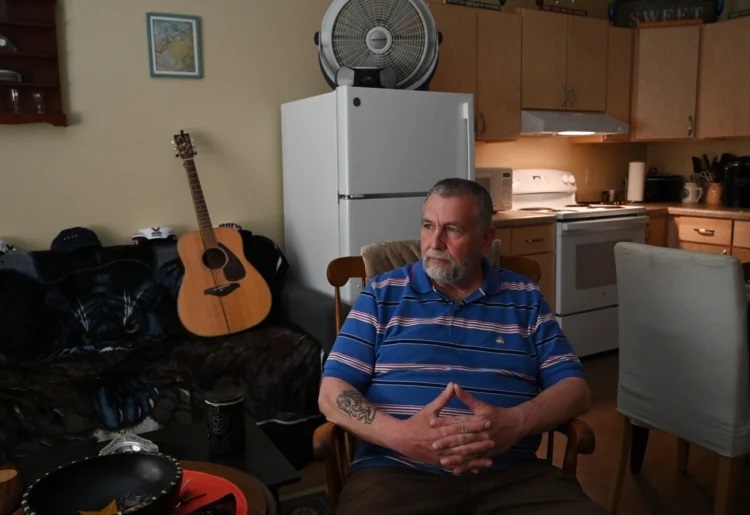John Welch was homeless for nine months before moving into Hillside at Village Square, a 27-unit subsidized apartment building in Gorham that Avesta Housing opened in January.
It was a rough period. A breakup left the disabled former construction worker struggling to find an apartment in a tight housing market made worse by the COVID-19 real estate boom. Welch says he managed to stay sober, despite spending nights in a homeless shelter, and he’s working to stay healthy in recovery in his new home.
“I’ve made some friends here already,” he says. “I’m looking forward to summer.”
But even as Avesta, the largest nonprofit affordable-housing provider in the state, and other developers plan, build and fill new housing, demand for affordable units in Maine continues unabated.
Total applications for Avesta’s 3,100 units in Maine and New Hampshire nearly doubled in the last two years — from 4,715 in 2020 to 8,836 in 2022 — and 43% of applicants were homeless.
While Avesta has added 341 units since 2020, it was only able to house less than 4% of applicants last year, down from 8% in 2021 and 9% in 2020.



